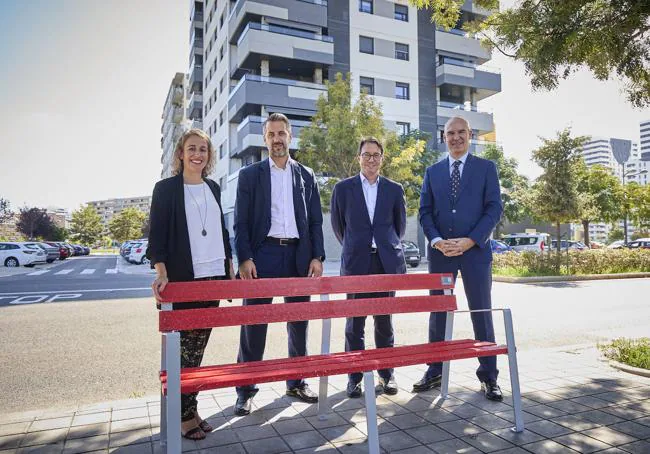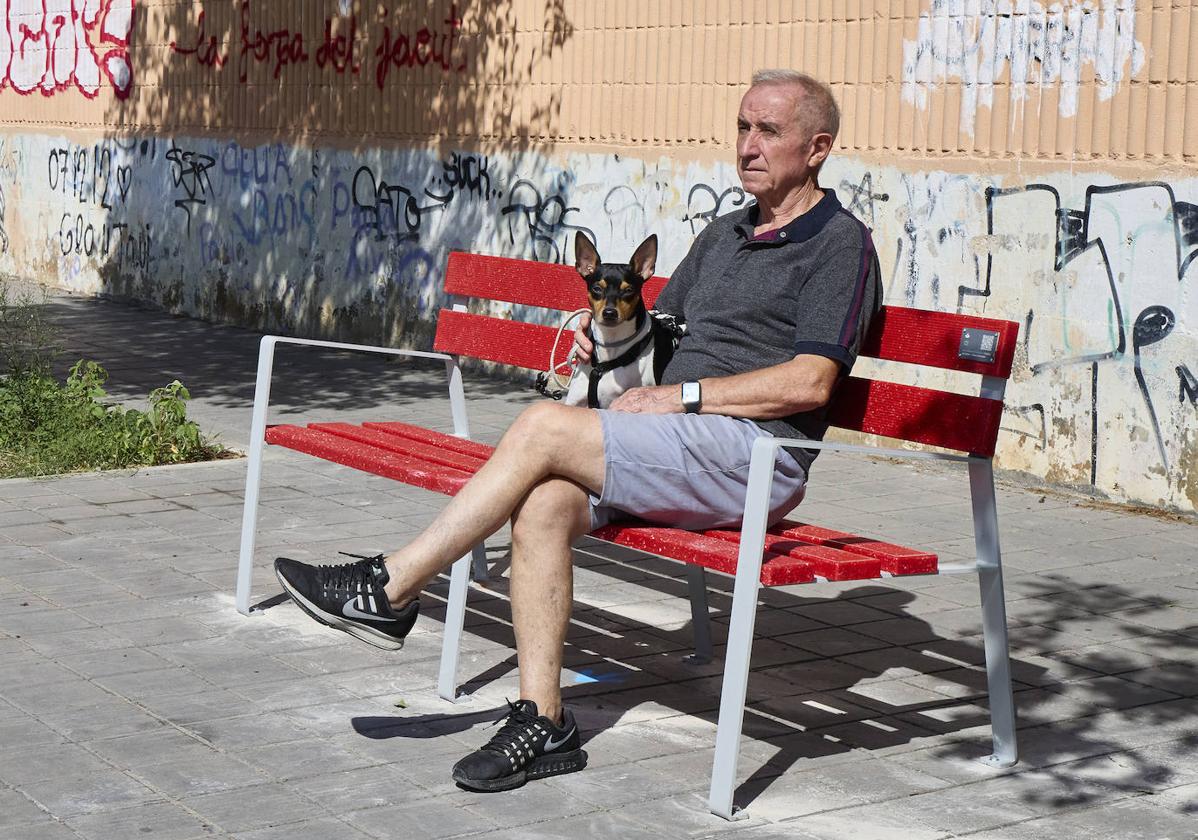“The banks that are set up in the city from now on will have support.” This was announced this Wednesday by the Councilor for Urban Planning, Juan Giner, during the installation of new furniture in the growing area of Nou Malilla, next to the new park and the neighborhood’s urban gardens.
The councilor explained that the “policy that we are going to carry out regarding the new furniture is very clear: the majority of the benches are going to be with support, to meet the needs of everyone and especially the elderly.”
This is a convenience that the municipal government of María José Catalá considers a priority, since in January 2023, when it was still in the opposition, they already came out in defense of the residents of the Plaza de Polo de Bernabé, in the Expósito district , who were not satisfied with the incorporation of benches that were made of concrete and that did not have this piece to support the back.
Already then the neighbors took to the streets with banners and the same criticism was received in the case of the design of the new furniture in the Plaza de la Reina, where the majority of benches are also made of concrete, a harder and more uncomfortable material, and also not They had support.
Precisely this commitment by the Valencia City Council to increase the number of benches on public roads in the cap i casal, especially to respond to the demand raised by older people to have rest points, has coincided this Wednesday with the incorporation of new ones seats that have been installed in Malilla, specifically in Ingeniero Joaquín Benlloch and Vicente Marco Miranda and around the new park and urban garden area.
The first made with cards that are installed throughout Spain
The Councilor for Urbanism, Juan Giner, second from the right, together with Laura Tejada, José María Valldecabres and José Miguel Lorente, from Banco Santander.
Ivan Arlandis

The novelty of these banks is that they are not made with wood, a noble material used for decades but which can splinter or break over time, but rather they are made of plastic and have been made from disused bank cards.
«We have recycled 770,000 bank cards and with them we have managed to make 130 banks and Valencia is the first city in Spain to incorporate them. Specifically, 34 units have been delivered,” explains Laura Tejada, from Responsible Banking and Sustainability at Santander Spain; José María Valldecabres, from ‘La Tribu’, cards from Santander Spain and José Miguel Lorente, director of institutions of the Territorial of Santander.
Furthermore, they add that although in principle they are considered electronic waste, a careful process is carried out to give them a new life in the form of banks. So that the entire transformation can be known, on the side of the bench they have put a QR code to follow the explanation.
Although in some parts of Valencia, such as Vicente la Roda de la Malvarrosa street (next to the Ballester Fandos school), banks made from recycled bottle caps have been implemented, in this case, they are the cards of a bank (Santander ) those that have served to shape the new furniture.
And this company has started a circular economy process and has already recycled 770,000 expired or damaged cards to reduce the environmental impact.
Giner announces the construction of a thousand homes on municipal lots
The Urban Planning Councilor of the Valencia City Council, Juan Giner, has announced that one of the objectives that the municipal government has set is to expand the pool of protected or affordable rental housing. In fact, he explained that they are analyzing the situation in which the different municipal lots are located “to seek public-private collaboration and create social housing.”
He added that they are studying different formulas “such as looking at the option of reaching agreements with companies to reach agreements on surface rights so that they can manage it for a few years”, logically always maintaining municipal property.
He has detailed that there are plots “that come from reserves of urban classifications, from developing areas of the city that give land to the City Council, and the idea is to build nearly a thousand homes for social rental, for young people under 35 years old or over 65 years old.” years or people with low incomes.
The process begins when the customer hands over their card, then receives a message confirming that it has been recycled and the complete process of managing expired cards begins, converting them into raw material to manufacture furniture, to give a second life to the products.
Although a large part of the banks have been installed in the expanding area of Nou Malilla, the objective is for these circular economy banks to also reach the center of Valencia, to give visibility to the project.
The Urban Planning Councilor has assured that there are many requests they receive to put more street furniture in the city, mainly for seating, and they are waiting for a new budget item to be allocated for this purpose and respond to the demand.
2023-09-27 19:05:36
#banks #Valencia #recycled #credit #cards


